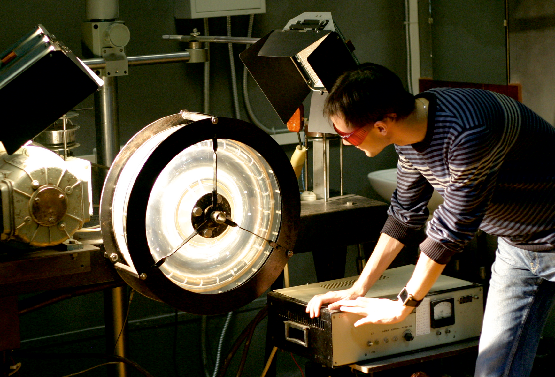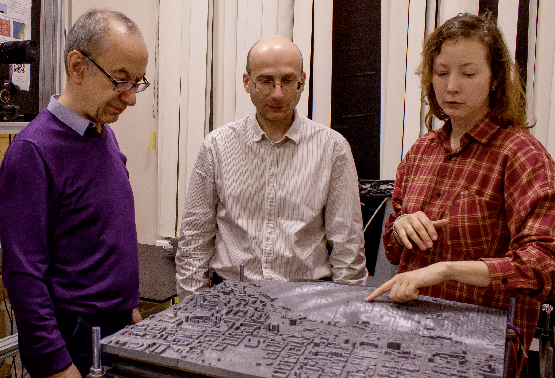The Laboratory is part of the Department of Physical Hydrodynamics.
Head of the Department: Frick Peter Gotlobovich
Phone: +7 (342) 237-83-22
E-mail:
Head of the Laboratory: Sukhanovskii Andrei Nikolaevich
Phone: +7 (342) 237-83-94
E-mail:
The Department of Physical Hydrodynamics was created in 2023 on the basis of the Laboratory of Physical Hydrodynamics – one of the four first laboratories of the Department of Polymer Physics of the Ural Scientific Center of the USSR Academy of Sciences.
Heads of the Laboratory:
|
|
Over its half-century history, the Laboratory has gained broad experience in theoretical, numerical and experimental studies of hydrodynamic problems. The expansion of research topics and applied studies requested transformation of the Laboratory into a department consisting of turbulence and technological hydrodynamics laboratories.


The Laboratory of Turbulence conducts fundamental and applied research on turbulent flows of different origins with a specific focus on heat exchange, astrophysical and geophysical fluid dynamics, and biomedical problems. The research team develops methods for laboratory modeling of hydrodynamic processes, including optical flow methods, such as PIV and TOMO-PIV.
The main results of recent studies relate to the features of turbulent transfer in stratified media and in spiral flows and modeling general circulation and baroclinic waves in the atmosphere of terrestrial planets. A separate research area focuses on non-invasive diagnostics of the human blood microcirculation system and on introducing innovative methods into routine clinical practice.

Theory and models of small-scale turbulence
Frick P., Shestakov A. Russ. J. Nonlinear Dyn. 2023. V. 19. No. 3. P. 321-331
Stepanov R. et al. Phys. Rev. Fluids. 2024. V. 9. No. 6. Article No. L062601

Turbulent convection: large scale circulation in the background of small-scale turbulence; convective heat transfer; dynamics of free-floating heat-insulating bodies
Frick P.G et al. J. Fluid Mech. 2024. V. 979. Article A23
Frick P. et al. Int. J. of Heat Mass Transf. 2025. V. 241. Article No. 126675

Geophysical and astrophysical hydrodynamics, dynamic meteorology, space magnetic fields, observational data processing
Frick P., Pleshkov R. Phys. Rev. E. 2024. V. 110. No. 6. Article No. 064203
Sukhanovskii A. et al. Climate Dyn. 2025. V. 63. N. 1. Article No. 74

Non-invasive methods for studying human blood flow microcirculation and development of mathematical methods for biomedical signal analysis
Mizeva I.A. et al. PLOS ONE. 2021. V. 16. No. 5. Article No. e0252296
Mizeva I.A. et al. Biomed. Sign. Proc. Cont. 2024. V. 100. Article No. 107188

Experimental methods for studying complex hydrodynamic systems
Sukhanovskii A.N. et al. 2019. Exp. Therm. Fluid Sci. V. 103. P. 29–36
Frick P. et al. Physica D. 2023. V. 455. Article No. 133882
